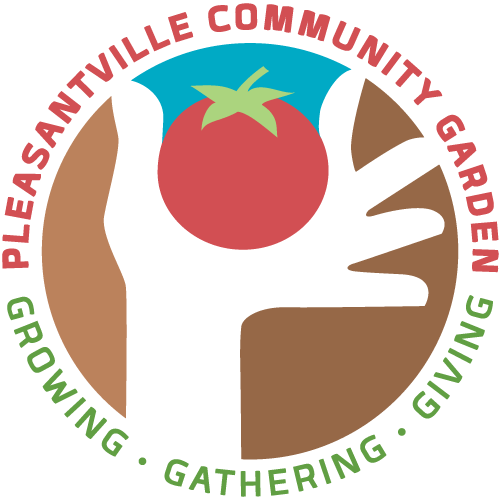
Benefits of Gardens
Community gardens are associated with numerous benefits that promote health and wellbeing, along with ecological and economic advantages. If you decide to donate produce from your community garden, these health and community-building benefits only increase. It is also important to note that many of these benefits intersect and overlap with one another, such as mental health and community wellness. In this chapter, we will delve into some of the benefits of community gardens with a donation aspect, but many of these benefits are also applicable to various types of gardens, like teaching, community, donation, and home gardens. We hope that this section gives extra encouragement to your desire to start a garden project and intend that this information can be used in presentations or communications to fundraise and gather support for your organization.
Following are benefits of gardens (we are certain you'll have many more):

1.
Community Wellness
-
Give residents control over local land, generating a sense of empowerment (Cumbers et al., 2017) Provides space for engagement with kids (Okvat and Zautra, 2011)
-
Facilitates new community connections (often multigenerational) (Kingsley and Townsend, 2006) Improves community resilience (extremely important in times of crisis) (Okvat and Zautra, 2011)
-
Reduces social isolation (Grenade and Boldy, 2008) Increases assistance between neighbors (Okvat and Zautra, 2011
Accessible green space (like gardens) has been linked to reductions in crime and violence (Kuo and Sullivan, 2001) -
If the produce is donated, the strength of the community is improved through support of the people most in need in the community (Blaine et al., 2010)
-
Growing food locally ensures better food security (Feenstra, 1997)
2.
Mental Health
-
Safe space allows for people to connect with nature (promoting tranquility and relaxation) (Wassenberg et al., 2015)
-
Planting, weeding, and harvesting on a regular basis have been found to decrease stress and depression by lowering stress hormone levels (Detweiler et al., 2015)
-
Turning attention away from negative thought patterns and onto the task of gardening improves overall mood and reduces mental fatigue (horticulture therapy) (Detweiler et al., 2015)
-
Gardening can reduce anxiety (Hassan et al., 2018) Gardening can improve self-esteem (Wood et al., 2016)
-
Contact with a particular bacterium in soil increases brain serotonin levels, reducing depression and anxiety (Lowry et al., 2007)
-
Social inclusion and connections facilitated by a community-run garden improves mental health and wellbeing (this can aid in coping with illnesses) (Diamant and Waterhouse, 2010)
-
Gardening and socializing in community-run gardens have been shown to slow the progression of dementia (White et al., 2017)
3.
Physical Health
-
Increased physical exercise improves physical health and overall fitness in children and adults (Soga et al., 2017)
Increased movement during gardening reduces joint and muscle pain (Detweiler et al., 2012) -
Donated produce will help to provide healthy fruits and vegetables for people in need in the community who may not have access to fresh produce due to its high price (especially important for people with illnesses like diabetes) (Basu et al., 2014)
-
Gardens encourage healthier lifestyles and eating habits through education on nutrition (McAleese and Rankin, 2007)
4.
Climate Health + Ecological Restoration
-
Gardens improve water regulation when they replace sealed surfaces like concrete (improves absorption of water runoff) (Gittleman et al., 2017)
-
Plants reduce air pollution by absorbing carbon dioxide (Okvat and Zautra, 2011)
-
Gardens can improve air circulation and cool the surrounding area (Okvat and Zautra, 2011)
-
Compositing improves air quality by reducing methane usually released when solid waste rots in landfills (Okvat and Zautra, 2011)
-
Composting recycles waste into nutrient dense soil (Claassen and Carey, 2013)
Greater local food production reduces greenhouse gases generated during long distance food transportation (Kulak et al., 2013) -
Hub of biodiversity and conservation (sanctuary for birds, insect pollinators, etc. (hopefully not animals eating your food!)) (Goddard et al., 2010)
Time spent in community gardens can lead to an increase in environmentally conscious behavior and a greater awareness of present environmental issues (Okvat and Zautra, 2011)
5.
Economic Benefits
-
Gardening is linked to a reduction in crime (improve economy of the community) (Kuo and Sullivan, 2001)
-
Higher property values associated with areas close to community gardens (A study found that within the poorest neighborhoods with a community garden, property values within 1000 feet of the community garden increased as much as 9.4 percent over a five year period after the community garden opened, while properties farther away from the garden had a property value increase of 2.4 percent) (Voicu and Been, 2008)
